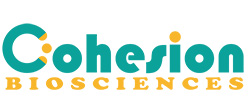Description: Rabbit monoclonal antibody to Beta-actin Immunogen: Recombinant protein corresponding to Beta-actin. Purification: The antibody was purified by immunogen affinity chromatography. Clonality: Monoclonal Form: Liquid in 0.42% Potassium phosphate, 0.87% Sodium chloride, pH 7.3, 0.2% BSA, 30% glycerol, and 0.01% sodium azide. Dilution: WB (1/3000 - 1/10000), IH (1/50 - 1/100), IF/IC (1/50 - 1/100) Gene Symbol: ACTB Alternative Names: Actin cytoplasmic 1; Beta-actinEntrez Gene (Human): 60Entrez Gene (Mouse) : 11461Entrez Gene (Rat) : 81822SwissProt (Human): P60709SwissProt (Mouse) : P60710SwissProt (Rat) : P60711Storage/Stability : Shipped at 4°C. Upon delivery aliquot and store at -20°C for one year. Avoid freeze/thaw cycles.
-
 Western blot analysis of Beta-actin expression in A549 (A), DF1 (B), pig lung (C), mouse brain (D), rat brain (E) whole cell lysates.
Western blot analysis of Beta-actin expression in A549 (A), DF1 (B), pig lung (C), mouse brain (D), rat brain (E) whole cell lysates. -
 Immunohistochemical analysis of Beta-actin staining in human lung cancer formalin fixed paraffin embedded tissue section. The section was pre-treated using heat mediated antigen retrieval with sodium citrate buffer (pH 6.0). The section was then incubated with the antibody at room temperature and detected using an HRP conjugated compact polymer system. DAB was used as the chromogen. The section was then counterstained with haematoxylin and mounted with DPX.
Immunohistochemical analysis of Beta-actin staining in human lung cancer formalin fixed paraffin embedded tissue section. The section was pre-treated using heat mediated antigen retrieval with sodium citrate buffer (pH 6.0). The section was then incubated with the antibody at room temperature and detected using an HRP conjugated compact polymer system. DAB was used as the chromogen. The section was then counterstained with haematoxylin and mounted with DPX. -
 Immunofluorescent analysis of Beta-actin staining in HeLa cells. Formalin-fixed cells were permeabilized with 0.1% Triton X-100 in TBS for 5-10 minutes and blocked with 3% BSA-PBS for 30 minutes at room temperature. Cells were probed with the primary antibody in 3% BSA-PBS and incubated overnight at 4 °C in a humidified chamber. Cells were washed with PBST and incubated with a DyLight 594-conjugated secondary antibody (red) in PBS at room temperature in the dark.
Immunofluorescent analysis of Beta-actin staining in HeLa cells. Formalin-fixed cells were permeabilized with 0.1% Triton X-100 in TBS for 5-10 minutes and blocked with 3% BSA-PBS for 30 minutes at room temperature. Cells were probed with the primary antibody in 3% BSA-PBS and incubated overnight at 4 °C in a humidified chamber. Cells were washed with PBST and incubated with a DyLight 594-conjugated secondary antibody (red) in PBS at room temperature in the dark.
Uncarboxylated osteocalcin alleviates the inhibitory effect of high glucose on osteogenic differentiation of mouse bone marrow–derived mesenchymal stem cells by regulating TP63
Uncarboxylated osteocalcin promotes osteogenesis and inhibits adipogenesis of mouse bone marrow‑derived mesenchymal stem cells via the PKA‑AMPK‑SIRT1 axis
Effective Parts of Gentiana straminea Maxim Attenuates Hypoxia-Induced Oxidative Stress and Apoptosis
Stathmin1 promotes lymph node metastasis in hypopharyngeal squamous cell carcinoma via regulation of HIF‑1α/VEGF‑A axis and MTA1 expression

 Anti-Beta-actin Antibody
Anti-Beta-actin Antibody  Datasheet
Datasheet MSDS
MSDS